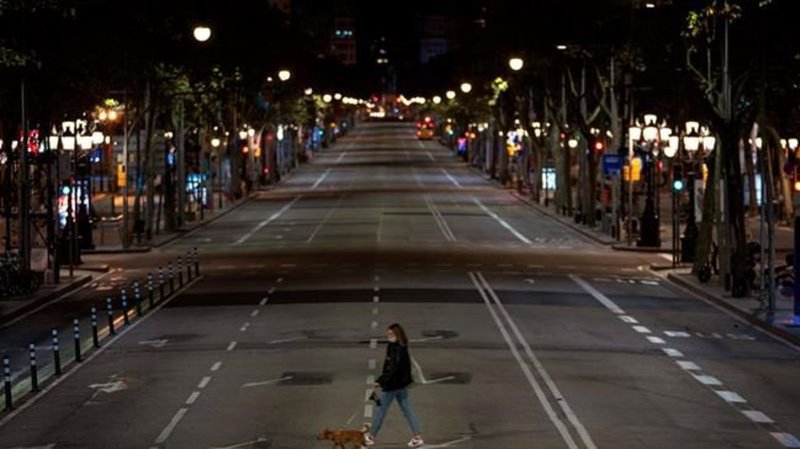
French doctor warns his country has ‘lost control’ of virus
PARIS — A French doctor warned Monday that his country has “lost control of the epidemic,” a day after health authorities reported more than 52,000 new coronavirus cases as nations across Europe enact more sweeping restrictions to try to slow surging infection rates.
Spain — the first European country to surpass 1 million confirmed COVID-19 cases — declared a state of emergency Sunday that included a nationwide overnight curfew, a cap of six people on social gatherings and possible travel bans in and out of the hardest-hit regions.
The effect was clear on Barcelona’s famed Las Ramblas promenade, which was deserted Sunday night when it normally would have been teeming with people.
In two major Italian cities, people took to the streets amid a pushback from small sections of society to new restrictions. On Friday, demonstrators in Naples protested a locally imposed 11 p.m. to 5 a.m. curfew and clashed with police. On Saturday night, far-right and neo-fascist groups led a similar protest in Rome against a curfew. Another protest is planned for Tuesday in Milan.
